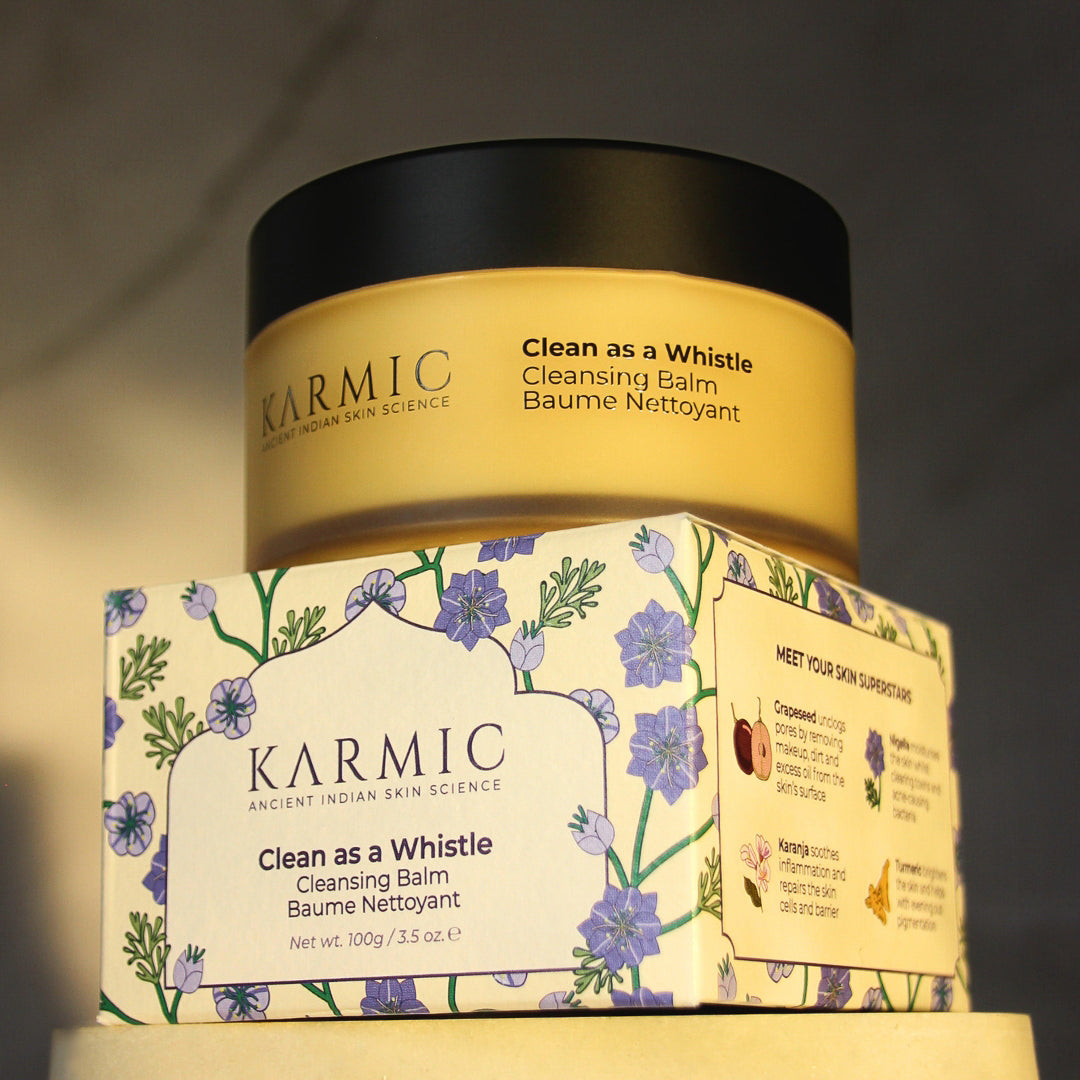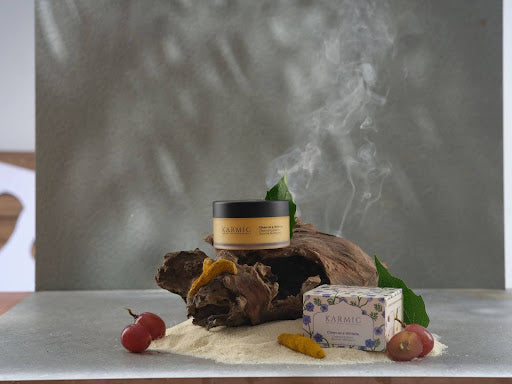Why Ingredient Awareness Matters in Skincare
Skincare is no longer just about what feels good on the skin; it is about understanding what goes into the products we use every day. For people with sensitive skin, this becomes even more critical because the wrong product can trigger irritation, redness, or breakouts. With shelves filled with hundreds of options, choosing between natural and synthetic ingredients often feels overwhelming. Knowing how to spot the right formulas, such as the best natural skin care products, helps ensure your skin receives the nourishment it deserves without unnecessary side effects.
Understanding Sensitive Skin and Its Needs
Sensitive skin reacts quickly to external factors such as harsh weather, pollution, strong ingredients, or even fragrances. Unlike normal or oily skin types, sensitive skin has a compromised barrier, making it more prone to irritation. This is why individuals with this skin type need gentle, soothing and balanced formulations. Products with fewer irritants and more skin-friendly ingredients are always preferable. The debate between natural and synthetic comes into focus here because both can affect sensitive skin differently.
What Are Natural Ingredients in Skincare?
Natural ingredients are derived from plants, minerals and other naturally occurring sources. These include aloe vera, chamomile, green tea, shea butter and essential oils. Many of these ingredients are packed with vitamins, antioxidants and anti-inflammatory properties that calm and protect the skin. When formulated correctly, they can be extremely beneficial, especially for people with delicate skin. This is why many Vegan skin care products rely on such ingredients to deliver effective results without harsh chemicals. However, it is important to note that natural does not always mean irritation-free, since some essential oils can be too strong for sensitive skin if used in high concentrations.
The Role of Synthetic Ingredients in Modern Formulations
Synthetic ingredients are those created in laboratories. These include preservatives, stabilisers, silicones and certain active ingredients like retinol or peptides. The benefit of synthetic ingredients is consistency and stability. For instance, laboratory-made vitamin C may be more stable than its natural counterpart, which can oxidise quickly. For sensitive skin, some synthetic ingredients can be too harsh, while others, such as hyaluronic acid, provide excellent hydration without irritation. This is why a balance of both natural and synthetic ingredients is often used in skincare formulations.
Comparing Natural vs. Synthetic: Safety and Effectiveness
When comparing natural and synthetic, the discussion is not about which is better overall, but which works best for your specific skin type. Natural ingredients are often celebrated for their gentleness and eco-friendliness, while synthetic ones offer precision and consistency. For sensitive skin, the wrong synthetic ingredient can cause redness or stinging, while the wrong natural ingredient can lead to allergic reactions. The key lies in finding formulations that balance safety and effectiveness. This is why choosing the best natural skin care products can often be the safest path for those with reactive skin.
Why the Best Natural Skin Care Products Are Favoured for Sensitive Skin
The best natural skin care products are often free from harsh chemicals, synthetic fragrances and sulphates that typically aggravate sensitive skin. Natural options tend to rely on plant-based extracts and oils that nourish, hydrate and soothe the skin barrier. They are also less likely to strip the skin of its natural oils, which is essential for maintaining balance. This makes them an excellent choice for anyone looking to keep their skincare simple, gentle and effective.
Vegan Skin Care Products: A Safer Choice for Delicate Skin
Vegan skin care products are formulated without animal-derived ingredients, making them not only ethical but also beneficial for sensitive skin. Animal-based ingredients such as lanolin or beeswax can sometimes clog pores or cause irritation. Vegan formulations, on the other hand, focus on plant-based alternatives that are light, breathable and nourishing. Since they often overlap with natural and clean beauty standards, vegan skin care products are a safer option for those who want cruelty-free, skin-friendly solutions.
Key Natural Ingredients That Work Well for Sensitive Skin
Several natural ingredients have proven benefits for sensitive skin. Aloe vera hydrates and calms redness. Chamomile reduces inflammation and soothes irritation. Oat extracts strengthen the skin barrier and relieve itchiness. Green tea provides antioxidant protection against environmental stressors. Shea butter moisturises without clogging pores. These natural ingredients, when used in the best natural skin care products, form a protective shield that keeps sensitive skin calm and healthy.
Harmful Ingredients to Avoid in Sensitive Skin Care
If you have sensitive skin, knowing what to avoid is just as important as knowing what to use. Harsh alcohols, artificial fragrances, sulphates, parabens and strong exfoliating acids are common irritants. Some synthetic dyes and preservatives can also cause reactions. Even natural ingredients like citrus oils or strong essential oils may be too harsh for delicate skin. Always patch-test new products before applying them to your entire face to prevent flare-ups.
How to Read Labels and Identify True Natural or Vegan Products
Marketing terms can be misleading. Labels like “natural” or “organic” are sometimes used loosely without strict regulation. To ensure you are purchasing the best natural skin care products, look for certifications such as COSMOS Organic, USDA Organic, or Ecocert. For vegan skin care products, seek certifications from trusted organisations like The Vegan Society or Leaping Bunny. Reading ingredient lists carefully is crucial if you see too many unrecognisable chemicals, the product may not be as natural as it claims.
Building a Routine with Gentle, Skin-Friendly Products
A simple and consistent routine works best for sensitive skin. Start with a mild cleanser, followed by a soothing toner and then apply a lightweight moisturiser enriched with natural extracts. Add a mineral-based sunscreen during the day and a calming serum at night. Choosing the best natural skin care products for each step ensures your routine is free from harsh irritants. Incorporating vegan skin care products adds the extra benefit of ethical, cruelty-free beauty.
Eco-Friendly and Ethical Benefits of Choosing Natural and Vegan Skincare
Aside from skin health, choosing vegan skin care products and natural formulations also benefits the planet. Natural and vegan brands often use eco-friendly packaging, avoid harmful chemicals that pollute water and ensure cruelty-free practices. By opting for the best natural skin care products, you not only protect your skin but also support sustainability and ethical beauty standards. This holistic approach aligns personal care with environmental responsibility.
Conclusion: Making the Right Choice for Your Skin
Sensitive skin requires extra attention and care. While both natural and synthetic ingredients have their advantages, the best natural skin care products and vegan skin care products stand out as safe, gentle and effective choices for delicate skin. By learning to read labels, identifying irritants and choosing products with soothing natural ingredients, you can build a routine that keeps your skin calm, balanced and glowing.




